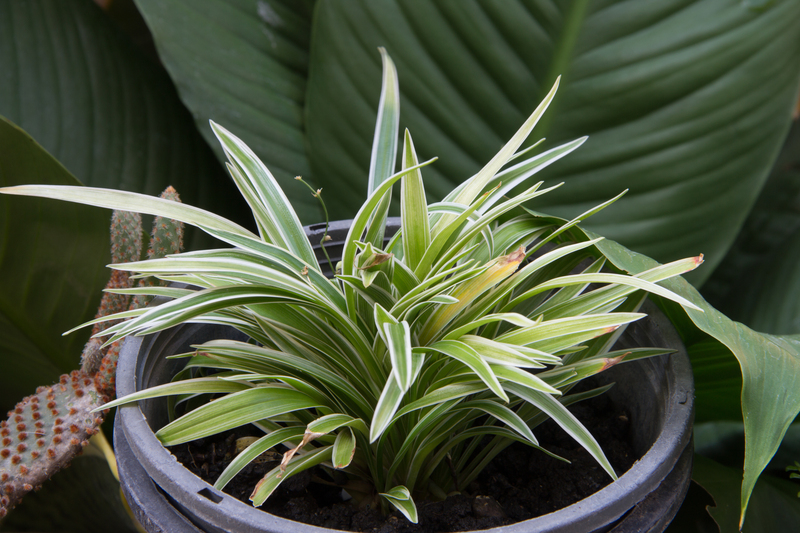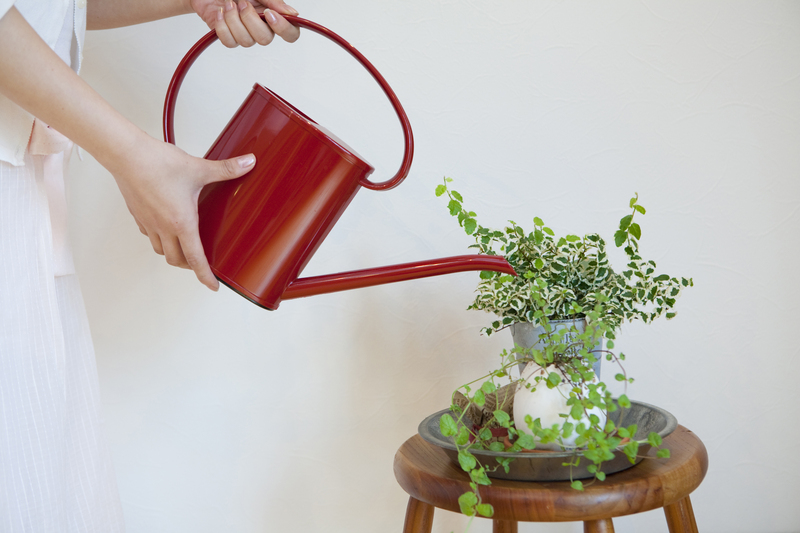Garden Water Usage Reduction
Posted on 21/11/2024
With increasing concerns about water scarcity and the environmental impact of excessive water use, reducing garden water usage has become an essential practice. Efficient water management not only conserves this precious resource but also contributes to a healthier garden. In this article, we will explore various strategies and tips to help you minimize water use in your garden, while still maintaining its beauty and productivity.
Why Garden Water Usage Reduction is Important
Water conservation is crucial for several reasons. First, it helps to protect the environment by reducing the strain on freshwater resources. Second, it can save you money on your water bill. Finally, efficient water use promotes healthier plant growth by preventing overwatering and waterlogging.

1. Assess Your Garden's Water Needs
Before implementing water-saving techniques, it's important to understand the specific needs of your plants. Different plants require varying amounts of water, and factors such as soil type, climate, and garden layout can also influence water requirements. Conducting a water audit can help you determine where and how much water is being used and identify areas for improvement.
2. Choose Drought-Resistant Plants
Opt for native or drought-resistant plants that are adapted to your local climate. These plants typically require less water and are more resilient during dry periods. Examples of drought-tolerant plants include succulents, lavender, yarrow, and certain varieties of ornamental grasses. Grouping plants with similar water needs together can also help optimize water usage.
3. Implement Efficient Watering Techniques
Using efficient watering techniques can significantly reduce water waste. Consider the following methods:
- Drip Irrigation: Drip irrigation systems deliver water directly to the root zone, minimizing evaporation and runoff. These systems can be easily installed and customized to meet the specific needs of different plants.
- Soaker Hoses: Soaker hoses are porous hoses that release water slowly along their length. They are ideal for watering garden beds and can be placed under mulch to reduce evaporation.
- Watering Schedule: Watering early in the morning or late in the evening reduces water loss due to evaporation. Watering deeply and less frequently encourages deep root growth and makes plants more drought-tolerant.
4. Utilize Mulch
Mulching is a highly effective way to retain soil moisture and reduce the need for frequent watering. Organic mulches, such as wood chips, bark, straw, and compost, help to insulate the soil, reduce evaporation, and suppress weeds. Apply a 2-3 inch layer of mulch around the base of plants, taking care not to cover the stems or trunks.
5. Collect and Reuse Water
Consider collecting rainwater to use in your garden. Installing rain barrels or other rainwater harvesting systems can provide a free and sustainable source of water for your plants. Additionally, reusing greywater from sinks, showers, and washing machines can help further reduce your reliance on tap water. Be sure to use eco-friendly products to avoid introducing harmful chemicals into your garden.
6. Improve Soil Structure
Healthy soil structure enhances water retention and reduces the need for frequent watering. Incorporate organic matter, such as compost, into your soil to improve its water-holding capacity and promote root growth. Well-structured soil allows for better water infiltration and reduces runoff.
Pros and Cons of Garden Water Usage Reduction
As with any practice, there are pros and cons to reducing garden water usage:
Pros:
- Conserves water resources.
- Reduces water bills.
- Promotes healthier plant growth.
- Encourages sustainable gardening practices.
Cons:
- Initial investment in efficient irrigation systems and mulching materials.
- Potential need for additional research and education on plant water needs.
Tips for Reducing Garden Water Usage
Here are some additional tips to help you reduce water usage in your garden:
- Regularly check and maintain irrigation systems to ensure they are working efficiently.
- Use a rain gauge to monitor natural rainfall and adjust watering schedules accordingly.
- Consider planting in raised beds to improve drainage and water management.
- Apply a layer of mulch around plants immediately after planting to help retain moisture.

Takeaways
Garden water usage reduction is a vital practice for sustainable gardening. By assessing your garden's water needs, choosing drought-resistant plants, implementing efficient watering techniques, utilizing mulch, collecting and reusing water, and improving soil structure, you can significantly mitigate water waste. The pros of water conservation far outweigh the cons, making it beneficial not only for your wallet but also for the environment.
Conclusion
Reducing water usage in your garden is not only an environmentally responsible choice but also a practical one. With a combination of thoughtful plant selection, efficient watering methods, and sustainable practices, you can maintain a thriving garden while minimizing water consumption. Start by assessing your garden's needs and gradually incorporate these strategies to create a more sustainable and water-efficient garden.












